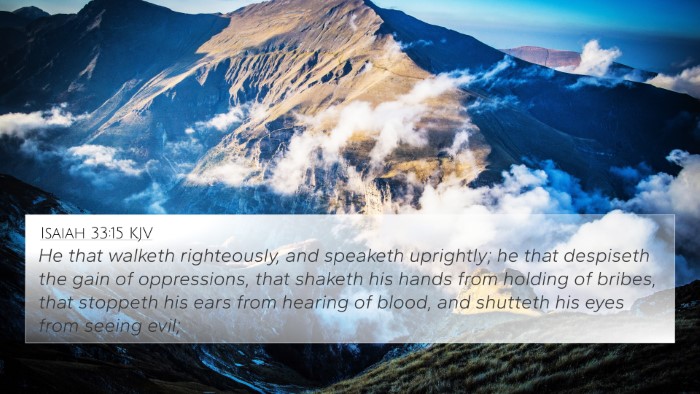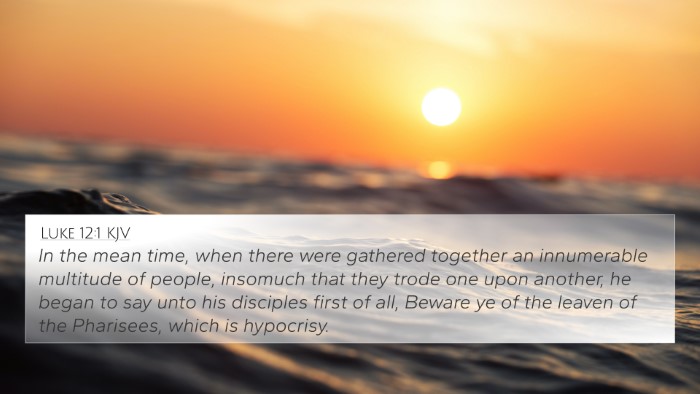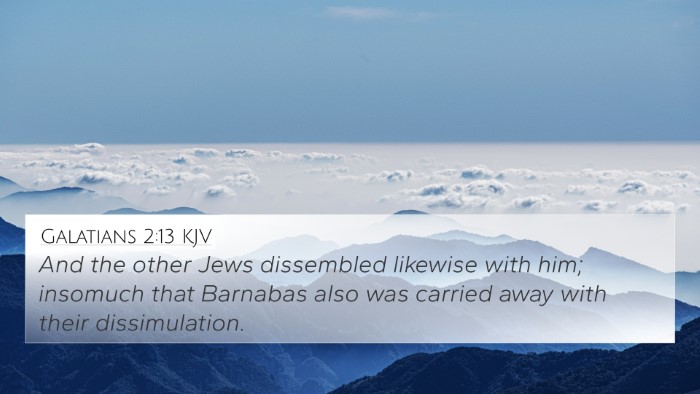Understanding Proverbs 10:9
Proverbs 10:9 states: "He who walks in integrity walks securely, but he who perverts his ways will be found out." This verse conveys a powerful message about the importance of integrity and the consequences of dishonesty. By drawing on the insights from public domain commentaries, we can unpack the deeper meanings and themes encapsulated in this wisdom literature.
Meaning and Significance
Proverbs 10:9 emphasizes the contrast between two pathways of life—one marked by integrity and the other by deceit. Commentaries by Matthew Henry, Albert Barnes, and Adam Clarke highlight several key points:
-
Integrity as Security: Walking in integrity is described as a way of life that provides security and peace. Matthew Henry notes that those who practice honesty can rest assured that their moral foundation is firm. This integrity allows individuals to navigate life's challenges without fear of exposure.
-
The Consequences of Deception: In contrast, those who distort their ways, as Barnes explains, are on a path that leads to inevitable exposure and ruin. Dishonesty may seem beneficial in the short term, but it ultimately leads to disgrace.
-
Moral Accountability: Adam Clarke points out that living deceitfully is not only harmful to oneself but impacts others. The notion of being 'found out' serves as a reminder of divine justice—truth will prevail, and dishonest acts will surface over time.
-
Application in Daily Life: The teachings from this verse lend themselves to practical application in the lives of believers, urging them to embrace honesty in their interactions and decisions.
Cross-References to Proverbs 10:9
Understanding the connections between Bible verses enriches our comprehension of biblical teachings. Below are several key cross-references that align with Proverbs 10:9:
-
Psalm 25:21: "May integrity and uprightness protect me, for I wait for you." This verse echoes the theme of protection brought by integrity.
-
Proverbs 11:3: "The integrity of the upright guides them, but the crookedness of the treacherous destroys them." A direct affirmation of how integrity leads to guidance.
-
Proverbs 28:18: "Whoever walks in integrity will be delivered, but he who is crooked in his ways will suddenly fall." This underlines the consequences of leading a deceitful life.
-
1 Peter 3:16: "Having a good conscience, so that when you are slandered, those who revile your good behavior in Christ may be put to shame." The value of a good reputation is affirmed here.
-
Galatians 6:7: "Do not be deceived: God is not mocked, for whatever one sows, that will he also reap." This emphasizes the inevitable reality of moral consequences for one’s actions.
-
Luke 8:17: "For nothing is hidden that will not be made manifest, nor is anything secret that will not be known and come to light." A reminder of the ultimate revelation of truth.
-
Jeremiah 17:10: "I the Lord search the heart and test the mind, to give every man according to his ways, according to the fruit of his deeds." This speaks to God's judgment based on one’s internal character.
Thematic Connections
The message of Proverbs 10:9 resonates throughout Scripture, presenting various themes of integrity, morality, and the consequences of our choices. The following points explore additional thematic connections:
-
Integrity vs. Deceit: Recurrent themes in the Proverbs delineate the stark contrast between righteous behavior and wickedness.
-
Moral Foundations: The wisdom literature often emphasizes building one's life on a moral foundation, which Proverbs 10:9 profoundly addresses.
-
Accountability: Understanding that one's actions have repercussions nurtures a sense of moral responsibility, reflected in many Biblical texts.
Conclusion
Proverbs 10:9 serves as a poignant reminder of the value of integrity and the dire consequences of deceit. By engaging with the insights of the commentators and recognizing the connections throughout Scripture, believers can cultivate a deeper understanding of biblical principles that promote a life of honesty and righteousness. This verse, supported by various cross-references, emphasizes how we can approach our lives with integrity—assured of the security it brings, while also aware of the inevitable exposure of wrongdoings.















